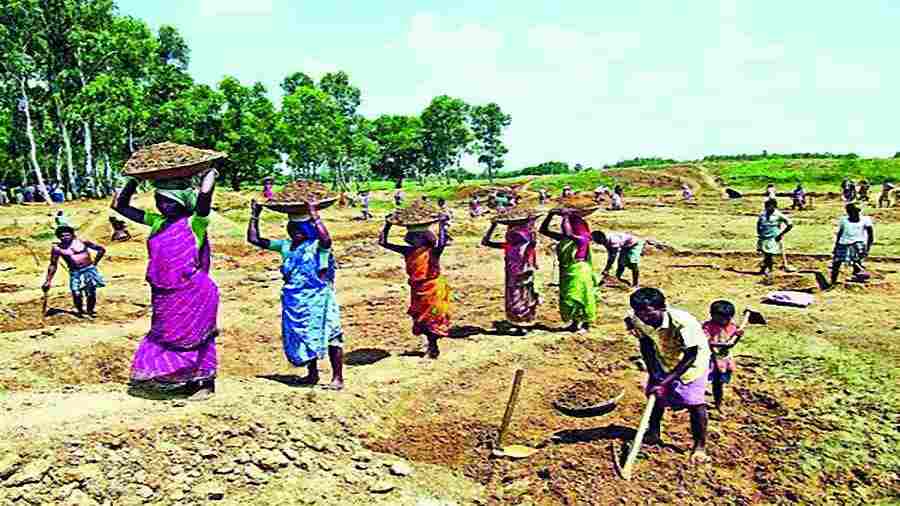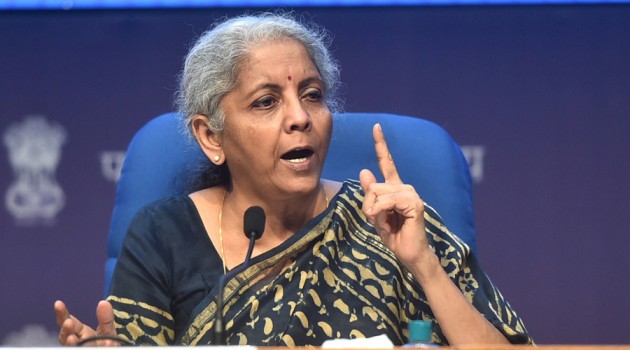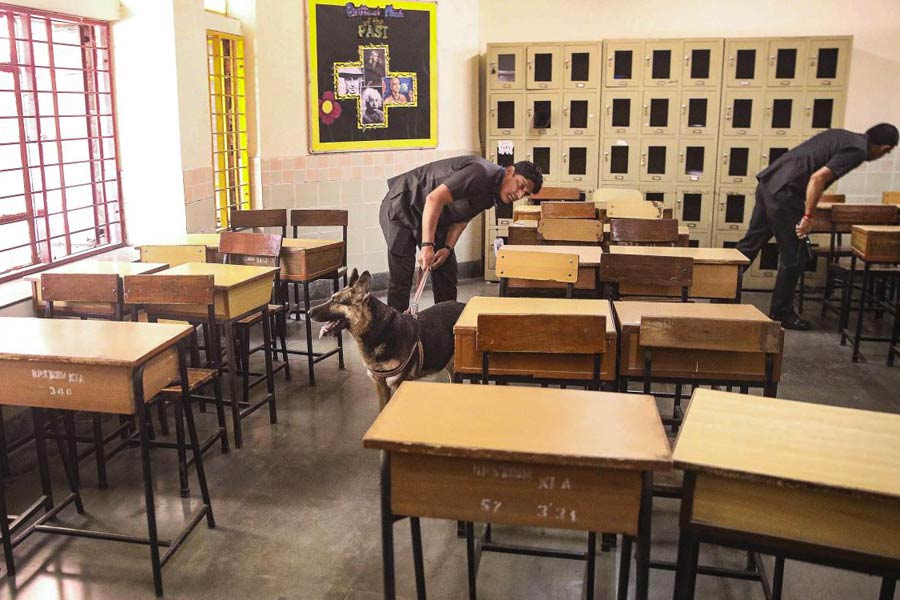The Narendra Modi government has made an Aadhaar-routed payment system mandatory for the disbursal of wages under the 100-day job scheme Mahatma Gandhi National Employment Guarantee Act, in a move decried as “reckless” and one that would shut out the majority of workers from the scheme.
Economists such as Jean Dreze, who closely monitors the implementation of the MGNREGA, said 57 per cent of workers were not part of the Aadhar-Based Payment System (ABPS), which has a labyrinthine enrolment process.
Many felt this was yet another step by the Modi government to dissuade people from seeking work under the national job scheme, under which each rural family is provided up to 100 days’ work a year.
The ministry of rural development issued a letter to all the states on January 30 informing them about the latest decision. “As you are aware that in order to ensure effective implementation of Mahatma Gandhi NREGS in the states and Union Territories (UTs), it has been made mandatory that all the payments to the beneficiaries under this scheme would be made through ABPS only and accordingly, this department has been regularly sensitising the states/ UTs in this matter,” said the letter from Dharamvir Jha, a director in the ministry.
The decision has been made effective from February 1, 2023. The NREGA Sangharsh Morcha, an umbrella body of groups working for better implementation of the scheme, said the decision would deny work to 57 per cent of registered workers. Now, workers are paid their wages through bank and postal accounts. Dreze, the economist, said complying with the ABPS was a cumbersome process. The workers have to request their bank for their account to be linked with their Aadahar number.
After this, the account must be registered with the National Payment Corporation of India following the submission of Know Your Customer details. The process also involves biometric authentication of the account holder. Dreze said only about 43 per cent of workers had access to the ABPS facility. He questioned the rationale behind pushing the new system.
“There is no evidence that payment through the ABPS is better than the payment made to normal bank accounts. This is a reckless decision which will deny work to the majority of the workers,” he said. “There is a lot of complication with the ABPS. That is why most workers have not done it yet,” Dreze told reporters at a media conference.
Activist Nikhil Dey pointed to the problems NREGA workers were already facing with the new system of mandatory online attendance. A photograph of the worker has to be taken at the work site and uploaded on a mobile app, a process that has been stymied by patchy Internet connectivity.
Dey said the government had allocated Rs 60,000 crore in 2023-24 for the NREGA, which was Rs 30,000 crore less than the revised allocation for2022-23. “The government should have increased the allocation to at least Rs 1.28 lakh crore to ensure that the active workers get at least 40 days of work a year. But it reduced the funds, which means there will be no money for work,” Dey said. MGNREGA workers from across the country have come to Delhi to protest against the mobile app-based attendance system since their attendance is not getting registered properly because of poor Internet connectivity in rural areas. “I worked six days one particular week but my attendance was registered for five days. A day’s labour went waste. They should bring back the old physical attendance system,” said Maheswari Devifrom Muzaffarpur in Bihar, one of the protesters.
Yogendra Yadav from the Jaikisan Andolan said the government was killing the NREGA without formally repealing the law.











